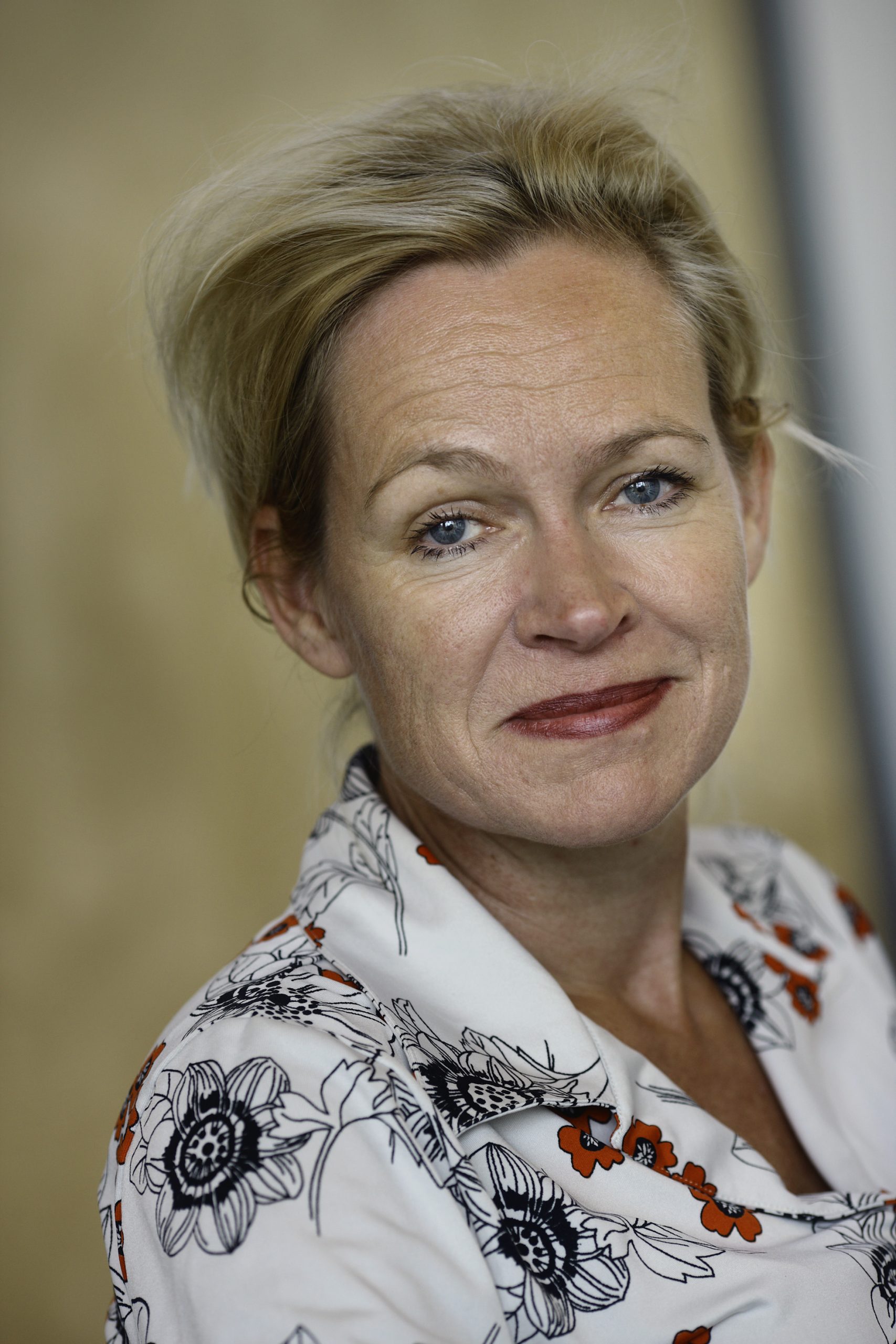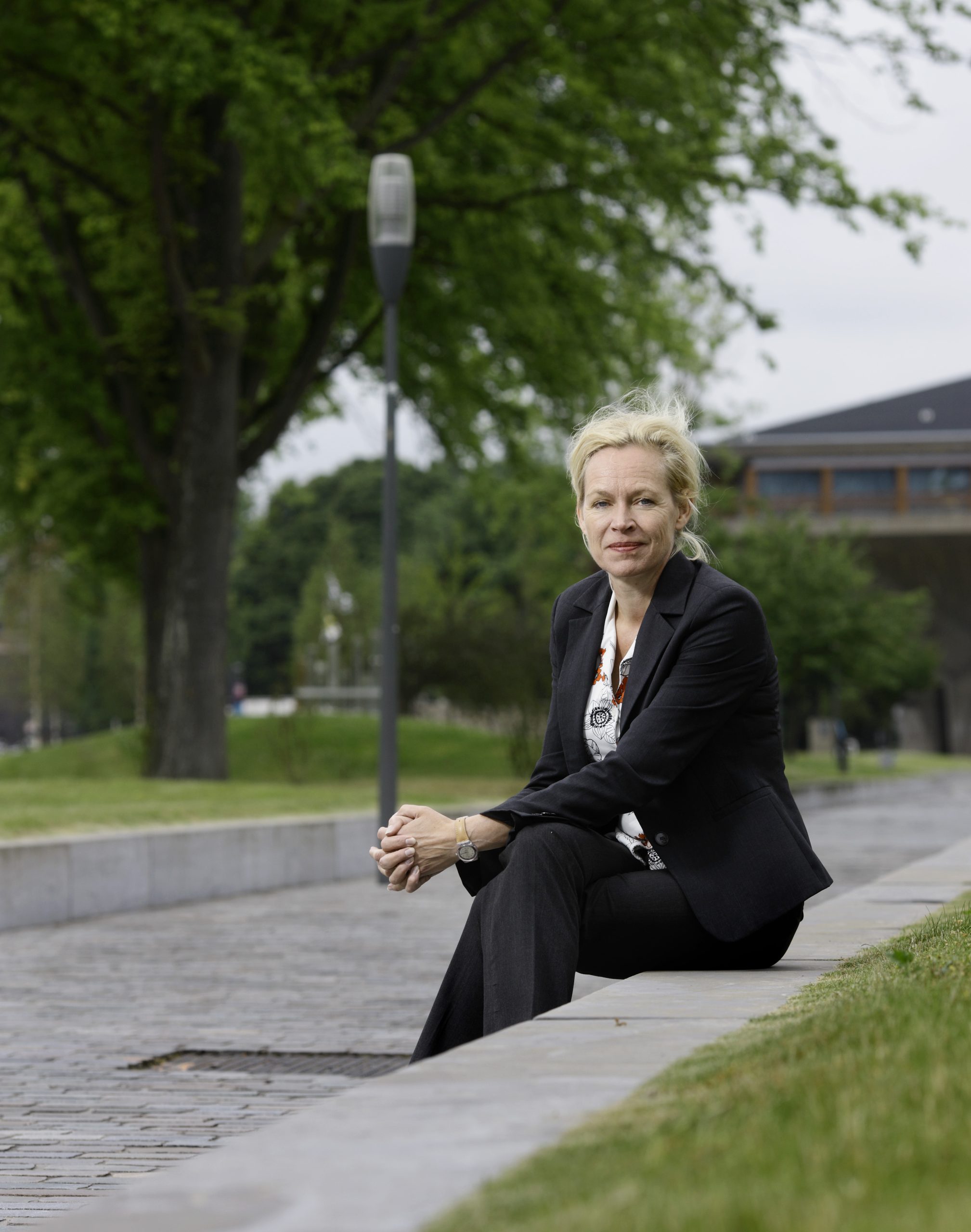An international university is an excellent university, claims Anka Mulder. As Vice President for Education and Operations, she is regarded as the driving force behind TU Delft’s efforts towards further social integration. ¨A global mind can change the world,” she says.
You were appointed Vice President in April 2013. How has your experience been so far?
I’ve had a very, very nice year, I have to say. It’s an honour to have this job at this university because I think that this is a fantastic university. I just love it. Also, the cooperation among the three of us –my colleagues Dirk-Jan [the President of the Executive Board] and Karel [the Rector Magnificus] – that’s been really nice as well.
As a female member of the Executive Board, do you feel that women are underrepresented at TU Delft?
Yes, I think so. If you look at the management level in the faculties and in the university as a whole, women have been underrepresented for quite a long time. A few years ago, the board started a very active policy to change that and I think a lot has changed. Of all the three technical universities, I’m the only woman in the Executive Board. Half of our directors are women and we have three women who are deans. That’s a major improvement. If you want to be a very good university, you
have to be open to talent, wherever it’s from, female or male. So we still have to take steps, but I think we’ve been quite successful in the last few years in changing the balance.
Prior to your appointment as Vice President, you served as both the Secretary General and Director of Education and Student Affairs. You were also the President of the OpenCourseWare Consortium. How did you manage to fulfil all three roles?
I wonder about that too. One clear thing is that you have to work very hard. I think what helps is that I really, really like my job. So it gives me a lot of energy. Also, having good colleagues is important. Finally, don’t be a perfectionist. I’m always quite flexible and I always think I can manage.
You studied History at the Rijksuniversiteit Groningen. Has this helped you in your career at TU Delft?
I don’t know if it has helped me, but it hasn’t been a problem. I think what has helped me is that I’ve worked in other countries for years and I’ve also lived in other countries. That has helped a lot because it gives you a broader perspective on your work here. If you’ve only worked in the Netherlands, it’s sometimes hard to understand or to see how things can be different. Universities worldwide are different.
The opening of the 2013 academic year was conducted for the first time in English. What was the reason behind this?
Well, I thought that was very important because the opening of the academic year is sort of the formal start of the year. Because we did it in Dutch, international students could attend but they couldn’t understand. If you want to be open to international students and if you want the opening of the academic year to be for them too, you have to do it in English. That was one of the first things I changed in my new role.
Integration has become a top priority for the university. Why does this issue need to be addressed?
If you look back at the internationalisation of this university, ten years ago, we had very few internationals among our students and staff. But now we have thousands of staff and students who are not Dutch. I think we’ve been very successful in numbers and we’ve also been successful in quite a number of other things. We have English language training. All our master’s programmes are in English and some bachelor’s programmes. Also, housing for international students has improved a lot. But then, you come at a point where you see that the numbers are okay, but still, these two populations don’t mix. It’s almost like there are two planets in orbit and sometimes they circle very close to each other. But there’s a Dutch culture and a Dutch student life and Dutch fraternities and then there is an international student life and international activities. That’s all fine, but it’s not an international university. So we have to make sure that we have the best of all worlds.
What are the barriers to integration?
I think one issue is that Dutch students start with their bachelor’s programme, when they’re eighteen. That’s the moment when they’ve all got their networks of friends and they join sports club or something else. International students tend to come for their master’s degrees, so they arrive at a time when the Dutch students have already built up their networks. And the other thing is language. You may think that it’s not a big deal if the activities of a studie vereniging (study association) are in Dutch, but it is. Because if you’re from China or from Italy, you just don’t understand it and you cannot attend. So language is also a big thing, not only in student activities but also for us as a Board. If I look at the all policy documents I receive, almost all of them are in Dutch. I’m not saying that every international student wants to read our policy documents, but what if they do? Well, there’s no way they can read it. So, I think our support staff and us, as the Executive Board, have to work much more in English.
Integration is mostly seen as the responsibility of internationals. Do you think this is true?
I think it’s a two-way street. I don’t know if you have to learn about other cultures, but you just have to be open to new friends or new colleagues, wherever they are from. For me, I don’t mind if people are not interested in Chinese culture or Italian culture or whatever. But, just be open and be interested in your student colleagues.
How does TU Delft benefit from a more integrated community?
If you look at all the world-class universities, there’s an international vibe there. If you go to MIT or Berkeley, you see that there are people from all over the world and they mix effortlessly. It’s a characteristic of a good university. The other thing is that it will also make international students happier if they could meet Dutch students and go out with them or go for a beer or whatever you like. how to do that on this campus. I think it’s much better if you integrate. Finally, there are some very strong points about the educational system and culture in the Netherlands. For example, Dutch students have a reputation for being quite assertive, asking critical questions and having a critical mind. Those are good things, I think. But also, different countries and different cultures have their own strong points. That’s what I mean. We have to make sure that we have the best of all worlds.
This issue has been raised several times in the past. What is the university doing to foster integration?
It’s not a new question, but I’m new. Last year, we took some little steps by having our big events in English like the Dies Natalis (anniversary) but also the opening of the academic year. Also, all policy documents now have to have an English summary. Those are small things. I also asked our support staff to come up with a new international strategy, which is now under discussion with the directors of education and the deans, because I think we need to take some bigger steps as well.
These include things like offering at least thirty ECs of your bachelor’s program in English, because that will make it much easier for exchange students to come to Delft. Or ask all faculties to include activities to integrate Dutch and international students. For example, Industrial Design Engineering has a master’s introduction programme for all students, Dutch and international.
That’s a really good example and I think other faculties could learn from that. Or facilitate international students to learn Dutch. So, after their Master’s programme, it would be easier for them to find a job here in the Netherlands. Or make sure that English is more widely used.
But it’s not only a top-down thing, of course. Integration, I think, is especially bottom-up. What we’ve also been doing is talking with student organisations and with the student council to see how we can start some bottom-up activities to make sure that integration will happen. If student organisations change, that would have a major impact.
What would indicate that progress is being made?
We actually measure student satisfaction. There’s a national student enquête (survey), the NSE, but we also participate in the International Student Barometer. That’s an international benchmark of universities all over the world and we’ve been participating in that for a number of years now. We know on which items we perform well, and which items we do not perform well. Integration is one of the items mentioned in the Barometer, but also how satisfied students feel about their programme here and their lives here. So the next time we do the International Student Barometer, I’m hoping we will have significantly higher marks on quite a number of those issues.
What do the Dutch think about this trend towards English?
It’s not only a trend at universities. If you look at secondary schools in the Netherlands, the number of students who have their programs in Dutch and English has increased enormously. I think for some students, it is more difficult to do their bachelor’s programme in English. You have to be honest about that. But I think, it’s difficult for everybody. So just get started and just be a little bit relaxed about that. The truth is, most of our engineers have to be able to work in English after they graduate anyway.
 CV
CVCV
Anka Mulder worked in Brussels and Vienna for several years, and was the head of department at the ROI institute for public administration before serving as Director of Education and Student Affairs at TU Delft. From 2011 to 2013, she was appointed as the university’s Secretary General and President of the global OpenCourseWare Consortium. Technology and business magazine FastCompany named her one of the most creative people in business in 2012.



Comments are closed.